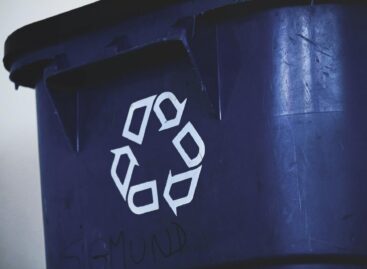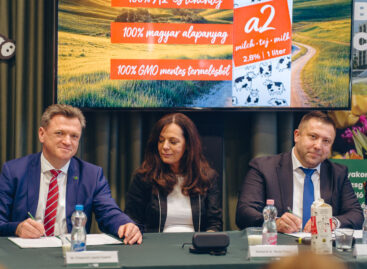HNT: the new waste management regulations cannot increase the burden on grape and wine producers
According to the National Council of Mountain Communities (HNT), the economic and bureaucratic burdens of grape and wine production should not be increased, the organization therefore welcomes the fact that, based on the government’s decision, the new waste management regulation should not have such an effect.

(Photo: PIxabay)
In its statement delivered to MTI on Friday, the producers’ advocacy group reminds that, during discussions with the government in recent months, it requested a review of the regulation that came into effect in July, representing the interests of the 25,000 grape growers and about 2,000 members of winemaking mountain communities working in the 22 wine regions of Hungary. In its announcement, the HNT points out that one aspect of the current decision is that in the fierce competition on the European wine market, quality is a determining element of the sector’s competitiveness, “since wine is a pleasure, cultural and sacred product at the same time”.
Following the government’s decision, the HNT will continue professional consultations with the relevant ministries in order to develop the detailed rules as soon as possible
During the negotiations, in addition to the review of the extended producer responsibility system (EPR), the requirements of the mandatory redemption system (DRS), which will start on January 1, 2024, must be put on the agenda in parallel – they indicated. János Frittmann, the president of the HNT, added: “The goal of the HNT in the ongoing negotiations with the government is to ensure that the sector’s economic and bureaucratic burdens do not increase. The most important task of our membership is to continue quality-enhancing investments both in the fields of grape growing and winemaking.” HNT explains in its previous information: the extended producer responsibility system (extended producers responsibility, EPR) also affects the wine industry, because the wine bottle is considered a packaging material, so it is obliged to pay the EPR fee based on the regulation. The Minister of Agriculture announced in a statement last Friday that the government will reduce the fee for wine bottles so that it does not represent a greater financial burden than the product fee paid so far.
MTI
Related news
This is how we drink wine!
🎧 Hallgasd a cikket: Lejátszás Szünet Folytatás Leállítás Nyelv: Auto…
Read more >2026: stricter EU rules and digital waste tracking
🎧 Hallgasd a cikket: Lejátszás Szünet Folytatás Leállítás Nyelv: Auto…
Read more >Related news
Every second German drinks plant-based
🎧 Hallgasd a cikket: Lejátszás Szünet Folytatás Leállítás Nyelv: Auto…
Read more >Tourism Business Index: improving sentiment, but the sector remains in the red
🎧 Hallgasd a cikket: Lejátszás Szünet Folytatás Leállítás Nyelv: Auto…
Read more >









